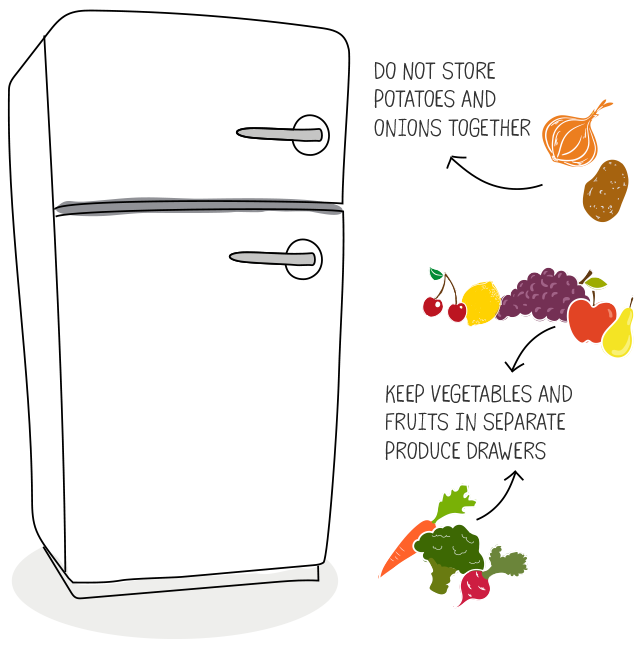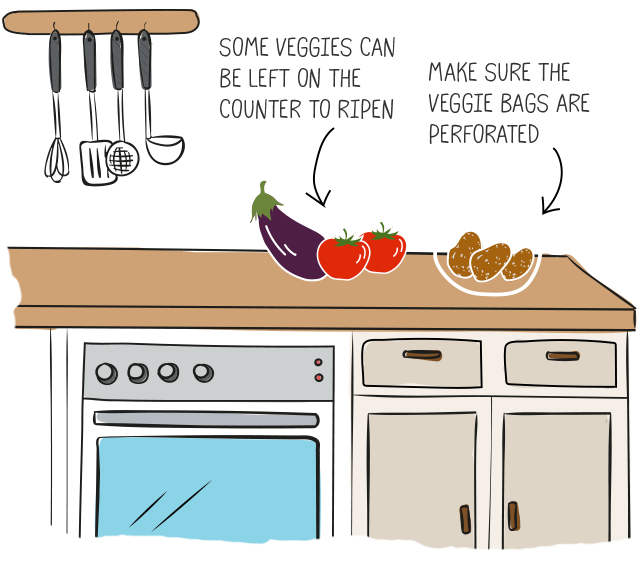Your Quick Guide to Keeping Veggies Fresh
Refrigerate or not? Store in a bag? Paper or plastic? Get the facts!

Q: I don't know how to store fresh veggies in the fridge. Do I take them out of their plastic bags? Is there anything special I should do before putting them in the fridge? How long can I expect them to last?
A: Although the best storage methods for fresh vegetables can vary within each vegetable category (green onions differ from Spanish onions, for example), here's a list with some basic guidelines. A few overall points to keep in mind first, though:

Refrigeration can damage some vegetables (such as potatoes), yielding an off-flavour or mushy texture.
Keep vegetables that are not stored in the refrigerator (such as potatoes and onions) away from heat sources and out of sunlight.
Some vegetables (like tomatoes and eggplants) can be left on the counter to ripen and then refrigerated to extend their lifespan.
When storing veggies in plastic bags, make sure to poke some holes in the bag to allow for proper air circulation. Or buy perforated plastic vegetable bags.

Keep vegetables and fruits in separate produce drawers because some fruits, such as apples and pears, produce a substance called ethylene that hastens ripening of other produce.
Do not store potatoes and onions together because they each give off gases that can cause the rapid decay of the other.
Although some vegetables can last for long periods of time when properly stored, try to use them sooner, rather than later, for optimal flavour and nutrient value.
Add crispness back to limp veggies like celery and asparagus by placing them stem-side down in a small amount of water; refrigerate until crisp.